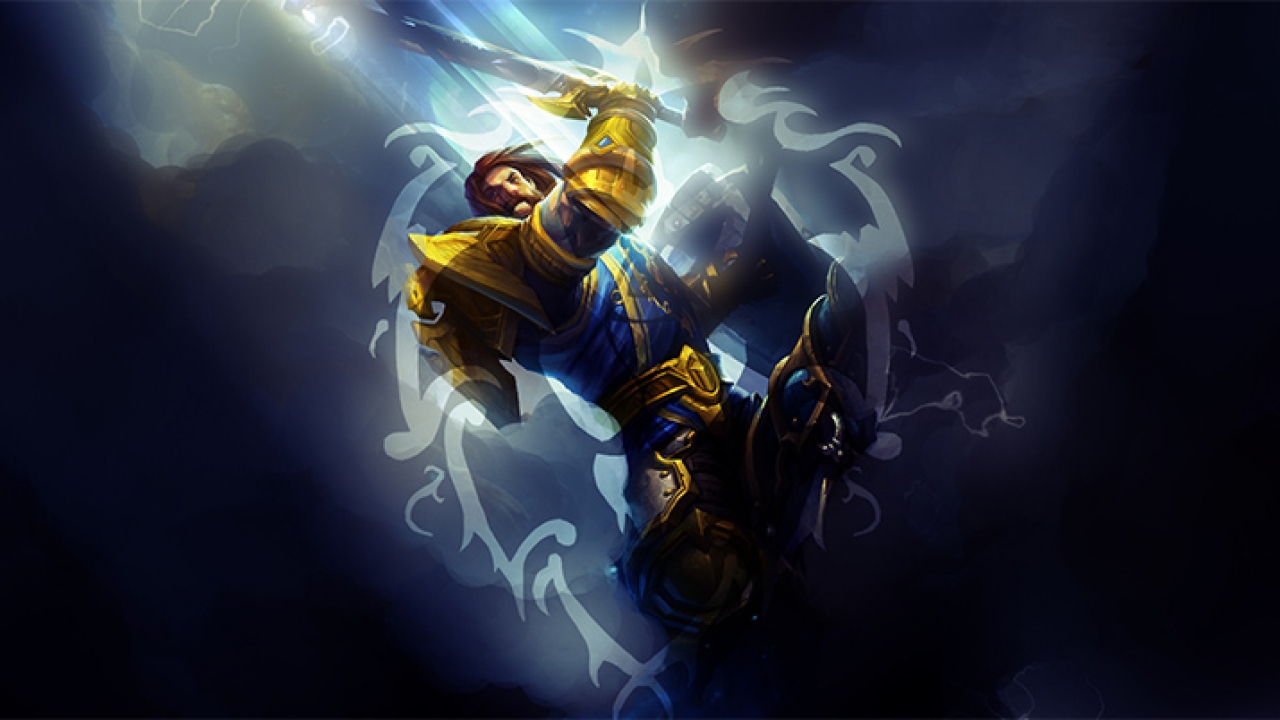We play games for all kinds of reasons—primarily for that dizzying, juicy hit of dopamine.
*Shivers*
Come to pappy.
But, a surprising side effect of staring at boxes and hitting buttons is the cultivation of quick and efficient decision-making abilities, particularly for those players partial to rapid-fire and high-pressure genres, like RTS. Thus saith science.
As someone whose only accomplishment in a MOBA match is taking the highest amount of damage, I’m partial to RPGs. Less skill, more story.
With their roots in tabletops, RPGs trundle along at a slower pace, tending toward immersion and story-heavy plots. They may not teach us supersonic decision-making skills (gotta choose fast!) [EN: Sanic], but I think games with strong narratives—RPG or otherwise— are predisposed to teaching decision-making as it pertains to morality.

Morality Without Morality Systems
Ethical questions are most obviously explored through player choice, but not all game mechanics are compatible with the freedom of choice. In a lot of MMOs, there are the natural restrictions of faction-based systems. You’re Horde or Alliance, Rebel or Empire, and your moral compass is automatically attuned to the direction of your in-group. Every game with a worthwhile story poses interesting moral questions, but some do so with ethical ideas already ingrained in the universe’s canon.
For instance, Bioshock’s entire world is an extrapolation of Ayn Rand’s Objectivism, with the game pivoting on “rational egoism”— Rand’s belief that only actions taken in absolute self-interest are right and rational. While players are given the choice between rescuing or harvesting Little Sisters, the dystopian horror of Rapture suggests that putting our own interests first, i.e., harvesting, is immoral and has terrible consequences. Player choice is overshadowed by the unfolding landscape of Rapture, which is an ultimately more compelling way of exploring rational egoism than a single player choice presented again and again.
That’s not to say these aren’t some of the best games ever created; only that in a game where ideas of morality are already built into the ethos, a degree of curiosity or initiative is needed on our part.
For instance, Ilidan’s beef with Xe’ra raises a lot of questions about destiny versus freewill, but we may or may not be affected by it. In scenarios like this, the invitation to consider ideas is present, but because little or no decision-making is required of us; any moral exploration takes the form of a thought experiment.

Moral Choice versus Moral Conundrum
On the other hand, games with morality systems force us to process options and weigh perspectives. These systems are interesting, albeit limited, particularly where there are clear divisions between good and evil, as in Fable.
Morality systems with no lasting consequences probably don’t impart much in the way of decision-making either. Bethesda games exist on more of a scale, but it’s easy to slide from either end of the good-evil spectrum. Steal a sweet roll, ingest ungodly amounts of skooma, massacre an entire city, resist arrest because you’re criminal scum… and you’ll end up with a pretty hefty price on your head. But, pay a fine or go to prison to sleep it off, and you’re a free khajiit with a clean start. There’s no lasting consequences except, perhaps, for a lighter purse.
No morality system is perfect, but that doesn’t negate a game’s power to pose some tough decisions.
Remember the Pitt quest in Fallout 3? Do you abolish slavery and its subsequent ‘utopia’, or allow an abhorrent institution to flourish in order to immunize against mutation?
Moral quagmires with no distinct ‘good’ or ‘evil’ lead to some of the most memorable moments in gaming. Deal or revenge in GTA IV? Mages or templars in Dragon Age? Everything in the Witcher 3?
Not only can these decisions change the trajectory of a story, but we’re asked to consider our own worldview. It’s no longer a choice between good and evil, but a conundrum resolvable only through one’s own system of values.
The choices we make determine who we are.
Hardly a novel idea, but as gamers we enjoy a little leeway because we can experiment in a virtual space, sans real consequence. We explore worldviews we otherwise wouldn’t and grapple with situations to which we might never be exposed.
Through this, we learn about ourselves, our values, our paradigm.
In this way, a game with a strong narrative transcends story, and asks us to consider our own.

